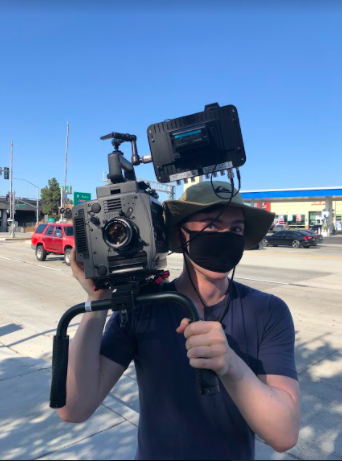The Colorado Environmental Film Festival (CEFF) showcases a variety of national and international films each year in an effort to promote sustainability and preservation practices. This year, the festival has moved online to protect attendees during the pandemic.
CEFF is a small non-profit festival that is largely managed by volunteers. Nicole Bickford, the festival director, is the only regular staff member. Since 2014, she has managed the festival. Under normal circumstances, it takes place at the American Mountaineering Center in Golden, CO. This year, the event is featuring 86 different films from 11 different countries.
“We are kind of a low-key down-to-earth film festival,” said Bickford. “We have our version of the red carpet, [called] our green carpet. It really feels more like a hometown festival, not a lot of glitz and glam. You are sitting down with filmmakers, and that’s kind of the centerpiece of the festival. It’s about the interactions and conversations that arise before and after watching the films.”

Due to the pandemic, the revelry and interpersonal connections that characterize the festival have been altered. Bickford, however, has found a bright side amidst the dismal conditions that constitute a contagion-contested country.
“By moving things virtually, we can expand our reach,” stated Bickford. “In a theater, you are limited by the number of seats and your rental length. We are now able to let people watch the films on their own time. We have also been able to increase our filmmaker interaction.”
In previous years, only 30% of directors were able to travel to the festival and answer questions after their film. Now, through virtual Q&A sessions, more are able to participate and talk about their work.
“I think it’s important that they [the filmmakers] have this larger platform to share their passion for their art,” said Bickford.
In addition to these sessions, the festival has incorporated virtual happy hours and interactive table discussions in an effort to reincarnate the intimate atmosphere the festival is known for.
“It will be like walking around in a virtual event hall where you can move from table to table,” said Bickford. “The platform allows you to do some virtual networking and chat about a variety of topics.”
Additionally, the festival is working to get young filmmakers involved with their new virtual help sessions. These workshops will be held throughout the week as a way to advise and assist passionate young people who want to break into filmmaking.
“We have partnered with Talk to The Camera, which is a local organization that does filmmaker workshops,” said Bickford. “With them, we are hosting a free filmmaking 101 workshop for kids. It will go through the basic steps in the process of filmmaking, and then they will submit a storyboard at the end of the week. We hope to pick at least one storyboard from that, and that filmmaker will receive some mentorship over the next several months so they can submit their film to the festival next year.”
While providing virtual Q&As and workshops is important to CEFF, what matters most is the films and what they mean to the world.
“The majority of our films are selected because they offer attendees insight into what’s actually being done,” stated Bickford. “There are solutions and ways for people to engage and actually do something, whether it’s small or large scale, to address the issues that we are seeing in the environment.”
Whether it’s “Breathing Drill,” a four-minute short on climate change, or “Your Friend, Ranger Doug,” a 17-minute look at public lands and parks, CEFF hopes the films they display will help motivate individuals and instigate change in how we manage the world.
“I think for us the motivating piece is that we can’t become complacent,” said Bickford. “We can’t let these things rest on the back burner. We want our attendees to know these issues aren’t going away, but things are being done. Efforts are being made locally and globally to reverse and stop. The call to action is really important to us. We want people to know there is work to be done, and everybody can help.”
The Colorado Environmental Film Festival is taking place from Feb. 12 – 21. You can find more information about CEFF and the films they are showing this year through this link.











